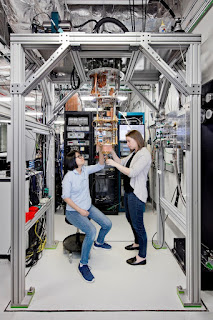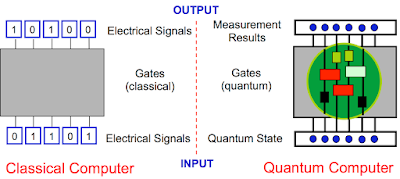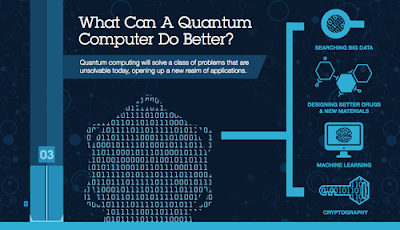Twitter Feed
CloudCamp Federal 2008 – Don’t miss out !!!
Tickets are going fast for CloudCamp Federal 2008 on November 12th in Chantilly, Virginia !! Representatives from the following organizations are already registered to attend. 3TERAAmazon Web Services (AWS)AOLAppistryApptisBooz Allen…
Private Clouds
Yesterday in eWeek, Chris Preimesberger, provided a very good read in “Why Private Cloud Computing is Beginning to Get Traction“. “Private cloud computing is a different take on the mainstream…
Important Cloud Computing Events
Mark your calendar for the following cloud computing events. These are specifically targeted to organizations looking to leverage cloud computing technologies and techniques in support of national security requirements. CloudCamp…
Forrester: Embrace Cloud Computing to Cut Costs
“Forrester Research advises CFOs to take a close look at cloud computing for messaging and collaboration and enterprise applications. The payoffs could be noticeable during the current economic downturn.” In…
Government still wary of cloud computing
Federal News Radio interviewed Ron Markezich, a corporate vice president of Microsoft, Mike Bradshaw, president of Google federal, and Michael Farber, a partner with Booz Allen on the government’s approach…
Microsoft Azure
With the announcement of Azure, Microsoft has finally made it’s cloud computing plans public. Maybe Larry Ellison is now ready to revise his opinion, huh? While this announcement is definitely…
Federal Grants from the Cloud
In case you mised it, the Department of Interior has announced that it plans to build a cloud computing platform to manage the processing and distributing of government grants. “Grants.gov…
Economist.com : Let it rise
This week, The Economist provides an insightful special report on cloud computing. From “Clouds and Judgement“: “Computing is fast becoming a “cloud”—a collection of disembodied services accessible from anywhere and…
Some More Cloud Computing Survey Results
As promised, here are some more results from the MIT/”Cloud Musings” on-line survey! Please remember, THIS IS NOT A SCIENTIFIC SURVEY !! The purpose is only to get a sense of…
Steve Ballmer comments on Microsoft’s cloud plans
On October 17th in the “Redmond Channel Partner Online”, a Microsoft Partner community publication, Kurt Mackie reported on Microsoft’s CEO Steve Ballmer’s comments on the company’s vision for syncing up…
- The release of a new API (Application Program Interface) for the IBM Quantum Experience that enables developers and programmers to begin building interfaces between its existing five quantum bit (qubit) cloud-based quantum computer and classical computers, without needing a deep background in quantum physics.
- The release of an upgraded simulator on the IBM Quantum Experience that can model circuits with up to 20 qubits. In the first half of 2017, IBM plans to release a full SDK (Software Development Kit) on the IBM Quantum Experience for users to build simple quantum applications and software programs.
The IBM Quantum Experience enables anyone to connect to IBM’s quantum processor via the IBM Cloud, to run algorithms and experiments, work with the individual quantum bits, and explore tutorials and simulations around what might be possible with quantum computing. Since its launch less than a year ago, about 40,000 users have run over 275,000 experiments on the IBM Quantum Experience. It has become an enablement tool for scientists in over 100 countries and, to date, 15 third-party research papers have been posted to arXiv with five published in leading journals based on experiments run on the Quantum Experience.
 The broad availability of quantum computing capability could prove to be a significant blow to current data encryption practices. In 2015 the US National Security Agency actually advised US agencies and businesses to prepare for a time when the cryptography protecting virtually all e-mail, medical and financial records, and online transactions would be rendered obsolete by quantum computing. The US National Institute for Standards and Technology (NIST) is also running a competition to spur work on post-quantum algorithms.
The broad availability of quantum computing capability could prove to be a significant blow to current data encryption practices. In 2015 the US National Security Agency actually advised US agencies and businesses to prepare for a time when the cryptography protecting virtually all e-mail, medical and financial records, and online transactions would be rendered obsolete by quantum computing. The US National Institute for Standards and Technology (NIST) is also running a competition to spur work on post-quantum algorithms. - Drug and Materials Discovery: Untangling the complexity of molecular and chemical interactions leading to the discovery of new medicines and materials;
- Supply Chain & Logistics: Finding the optimal path across global systems of systems for ultra-efficient logistics and supply chains, such as optimizing fleet operations for deliveries during the holiday season;
- Financial Services: Finding new ways to model financial data and isolating key global risk factors to make better investments;
- Artificial Intelligence: Making facets of artificial intelligence such as machine learning much more powerful when data sets can be too big such as searching images or video; or
- Cloud Security: Making cloud computing more secure by using the laws of quantum physics to enhance private data safety.
This content is being syndicated through multiple channels. The opinions expressed are solely those of the author and do not represent the views of GovCloud Network, GovCloud Network Partners or any other corporation or organization.
( Thank you. If you enjoyed this article, get free updates by email or RSS – © Copyright Kevin L. Jackson 2017)
Cloud Computing
- CPUcoin Expands CPU/GPU Power Sharing with Cudo Ventures Enterprise Network Partnership
- CPUcoin Expands CPU/GPU Power Sharing with Cudo Ventures Enterprise Network Partnership
- Route1 Announces Q2 2019 Financial Results
- CPUcoin Expands CPU/GPU Power Sharing with Cudo Ventures Enterprise Network Partnership
- ChannelAdvisor to Present at the D.A. Davidson 18th Annual Technology Conference
Cybersecurity
- Route1 Announces Q2 2019 Financial Results
- FIRST US BANCSHARES, INC. DECLARES CASH DIVIDEND
- Business Continuity Management Planning Solution Market is Expected to Grow ~ US$ 1.6 Bn by the end of 2029 - PMR
- Atos delivers Quantum-Learning-as-a-Service to Xofia to enable artificial intelligence solutions
- New Ares IoT Botnet discovered on Android OS based Set-Top Boxes




